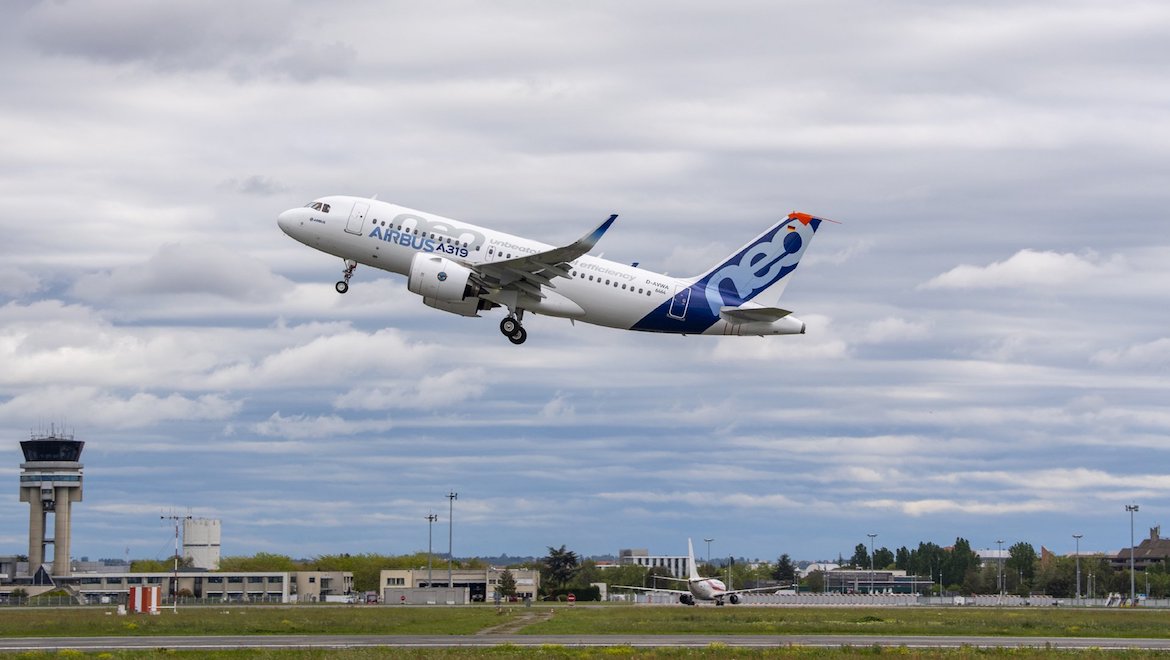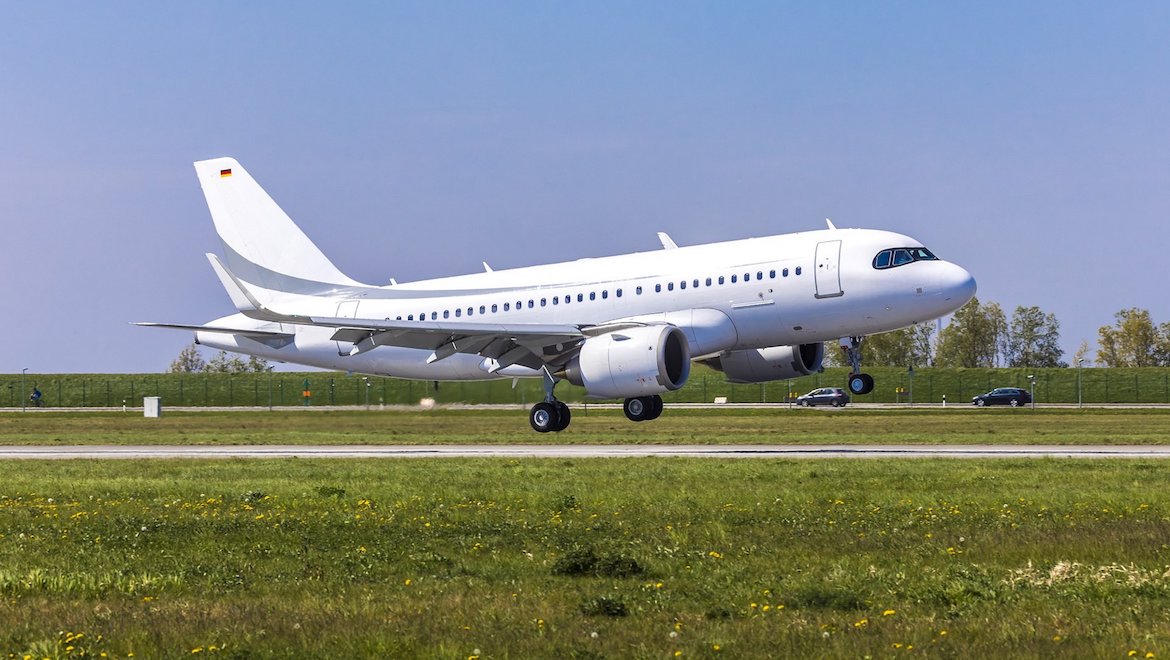
Airbus has commenced flight tests of its A319neo (new engine option) narrowbody powered by Pratt & Whitney geared turbofan engines.
The first flight of A319neo D-AVWA MSN 6464 with two PW1000G engines took off from Airbus’s Toulouse headquarters at 1230 on Thursday (European time) and landed at 1520, Airbus said in a statement.
There were five people on the flight – Captain Philippe Castaigns, First Officer Shaun Wildey, flight test engineers Frank Hohmeister and David O’Nions, and test flight engineer Cedric Favrichon.
Airbus said it expected the A319neo with the Pratt & Whitney engines would receive its certification by the fourth quarter of calendar 2019.
The Pratt & Whitney PW1000G is one of two engine options available on the A320neo family of aircraft alongside the CFM LEAP-1A powerplant.
The first flight of the A319neo with the LEAP-1A, which was also on D-AVWA MSN 6464, occurred in March 2017. The LEAP-1A engine for the A319neo received certification in December 2018, following a flight test campaign that comprised about 500 flight hours.
VIDEO: A look at the first flight of the A319neo with CFM LEAP-1A engines in March 2017 from the Airbus YouTube channel.
The smallest member of the A320neo family of aircraft, A319neo can seat up to 140 passengers in a typical two-class configuration, according to the Airbus website. The aircraft has a range of 3,700nm.
Figures from Airbus showed the manufacturer had 35 orders for the A319neo at March 31 2019. This represented 0.5 per cent of all A320neo orders, which stood at 6,504 aircraft at the end of March.
Of those 30 aircraft were listed for “undisclosed” customers, three for “governments, executive and private jet” customers and two for Air Cote D’Ivoire.
In related Airbus news, the company said the corporate jet version of the A319neo, known as the ACJ319neo, has also completed its first flight.
The ACJ319neo completed a one hour and 55 minute flight in Hamburg on April 24, kicking off a flight test program to verify some specific features of the aircraft designed for corporate use, such as extra fuel tanks in its cargo-hold that allow for intercontinental operations.
The flight test aircraft, which will be delivered to Germany-based K5 Aviation, has five additional centre tanks (ACTs) and also a lower-cabin altitude, Airbus said. It will fitted a VVIP cabin interior by Fokker Techniek in the Netherlands after being delivered.





